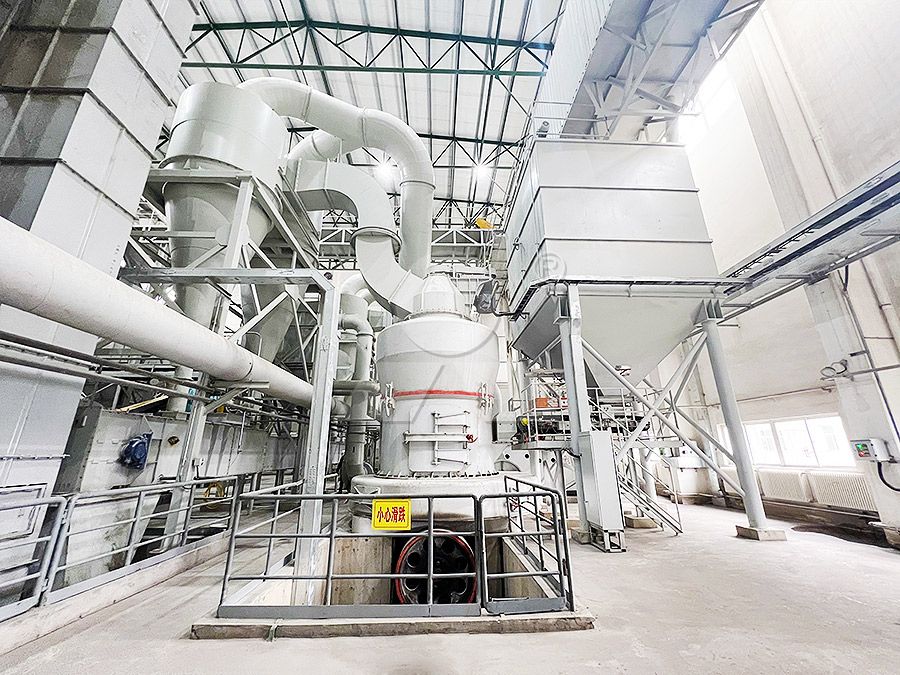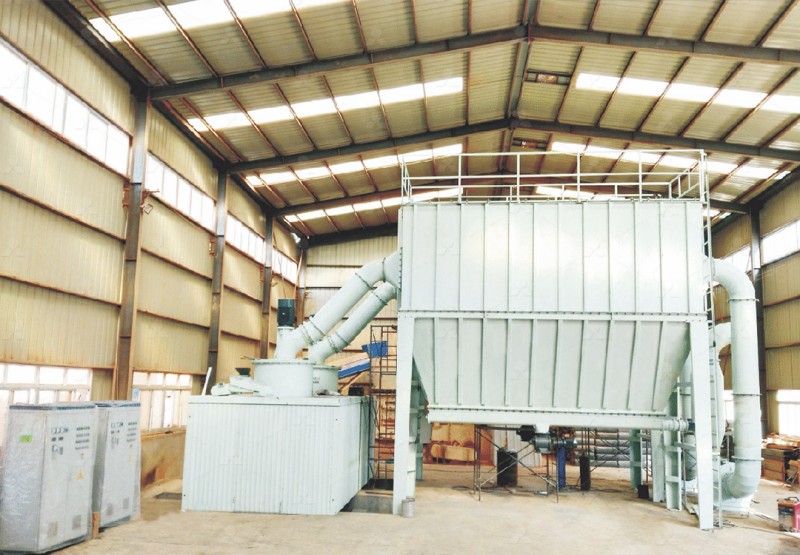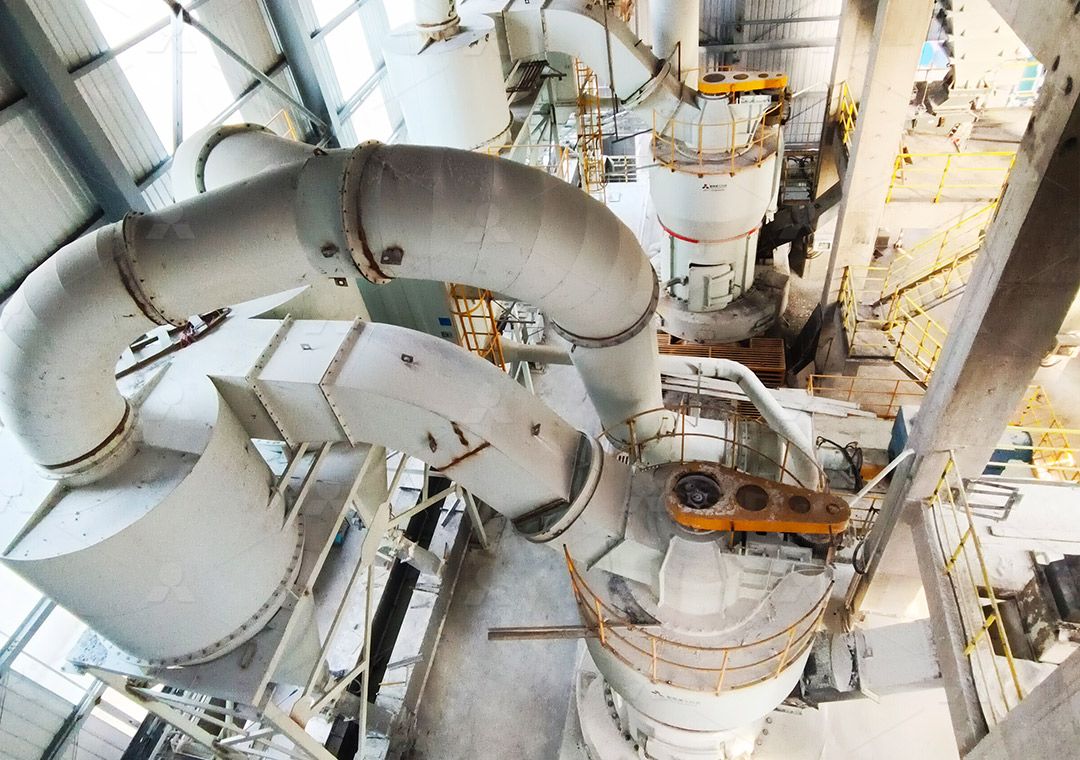1250 Mesh Gypsum Grinding Mill: A Complete Guide
We provide a wide range of mills — including Raymond mill, trapezoidal mill, vertical mill, ultrafine mill, and ball mill, obtained ISO9001 international quality certification, EU CE certification, and Customs Union CU-TR certification. Suitable for processing minerals such as limestone, phosphate, quicklime, kaolin, talc, barite, bentonite, calcium carbonate, dolomite, coal, gypsum, clay, carbon black, slag, cement raw materials, cement clinker, and more.
The discharge range of these mills can be adjusted to meet specific processing needs, typically from 80-400 mesh, 600-3250 mesh, and can achieve the finest particle size of up to 6000 mesh(D50).
If you are looking for a reliable grinding solution to turn stone or minerals into fine powder, please feel free to contact our online customer service.
1250 Mesh Gypsum Grinding Mill: A Complete Guide
In the world of industrial mineral processing, achieving ultra-fine powder specifications is crucial for numerous applications. Gypsum, a versatile mineral used in construction, agriculture, and various industrial processes, often requires grinding to precise fineness levels. The 1250 mesh specification represents an ultra-fine powder that demands specialized equipment and expertise.
Producing gypsum powder at 1250 mesh presents unique challenges. The grinding process must balance energy efficiency with precise particle size control while maintaining consistent output quality. Traditional grinding mills often struggle with the heat generation and energy consumption required for such fine grinding, making advanced milling technology essential for profitable operations.

Technical Considerations for Ultra-Fine Gypsum Grinding
When targeting 1250 mesh gypsum powder, several technical factors become critical. The grinding mill must handle the soft yet abrasive nature of gypsum while preventing excessive heat that can dehydrate the material. Proper air classification is equally important, as precise particle separation ensures consistent fineness without over-grinding.
The moisture content of feed material significantly impacts grinding efficiency. Most modern mills integrate drying capabilities, allowing simultaneous grinding and moisture reduction. This integrated approach streamlines production while maintaining powder quality.
Advanced Milling Solutions for Precision Grinding
For operations requiring 1250 mesh gypsum powder, we recommend our MW Ultrafine Grinding Mill as an ideal solution. This advanced mill system specializes in producing ultra-fine powders between 325-2500 meshes, making it perfectly suited for 1250 mesh gypsum production. With an input size capacity of 0-20 mm and throughput ranging from 0.5-25 tph, the MW series handles various production requirements efficiently.
The MW Ultrafine Grinding Mill incorporates German cage-type powder selector technology, ensuring precise particle separation and consistent fineness. Its innovative design eliminates rolling bearings and screws from the grinding chamber, significantly reducing maintenance concerns and potential contamination. The integrated pulse dust collector and muffler system maintains clean operation while meeting stringent environmental standards.

Production Workflow and Quality Control
A successful 1250 mesh gypsum production line involves careful coordination of multiple components. The process typically begins with preliminary crushing to reduce raw gypsum to manageable sizes, followed by controlled feeding into the grinding mill. Within the milling chamber, specialized grinding curves on rollers and rings optimize contact with material, enhancing efficiency while reducing energy consumption.
Quality monitoring throughout the process ensures the final product meets specifications. The MW mill’s external lubrication system allows continuous operation without shutdowns for maintenance, supporting 24-hour production schedules. Real-time monitoring of temperature, pressure, and power consumption helps operators maintain optimal grinding conditions.
Economic and Environmental Benefits
Modern ultra-fine grinding mills offer significant advantages over traditional equipment. Compared to jet mills and ball mills, the MW Ultrafine Grinding Mill demonstrates 40% higher production capacity with equivalent power consumption. The system energy consumption is approximately 30% of comparable jet grinding mills, resulting in substantial operational cost savings.
Environmental compliance is seamlessly integrated through the mill’s pulse dust collection system, which eliminates dust pollution during operation. Combined with noise reduction technology, the entire milling process aligns with international environmental protection standards while maintaining production efficiency.

Frequently Asked Questions
What is the maximum production capacity for 1250 mesh gypsum powder?
The MW Ultrafine Grinding Mill can process between 0.5-25 tph depending on specific configuration and material characteristics. For 1250 mesh gypsum production, typical capacity ranges from 3-18 tph.
How does the mill prevent contamination of the gypsum powder?
The grinding chamber contains no rolling bearings or screws, eliminating common sources of metallic contamination. External lubrication systems further prevent oil contamination while enabling continuous operation.
What maintenance requirements should operators expect?
The MW series requires minimal maintenance thanks to its robust design. The reversible structure allows easy access to grinding components, and original spare parts ensure optimal performance throughout the equipment lifecycle.
Can the same mill process materials other than gypsum?
Yes, the MW Ultrafine Grinding Mill handles various materials including limestone, calcite, dolomite, barite, and talc. The adjustable fineness between 325-2500 meshes makes it versatile for different production requirements.
How does the mill achieve consistent 1250 mesh fineness?
The advanced cage-type powder selector with German technology provides precise particle separation. Multiple cage configurations allow customization based on production requirements, ensuring consistent output quality.
